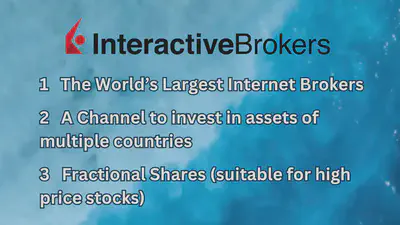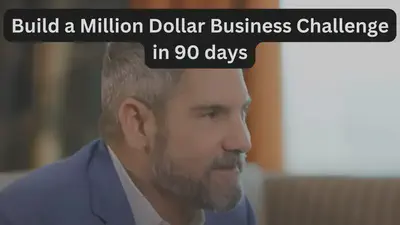Top 5 Traits of Financially Intelligent Individuals

Table of Contents
Today, I’ll provide a summary of Robert Kiyosaki’s book titled “Increasing Your Financial IQ, Getting Richer by Getting Smarter.” Kiyosaki emphasizes the importance of possessing five fundamental financial intelligences to achieve wealth and, more crucially, to sustain it.
Financial IQ number 1, Making More Money

If you have a toothache, it means you have dental problems.
To solve the problem and stop the pain, you visit a dentist.
In the same way, if you are not earning enough money, it means you have money problems.
If you start solving the money problems, the pain of not having enough money will go away, just like your toothache.
For example, let us say you want to improve your selling skills, but you are very shy and hate rejection.
This is quite a serious problem that stops many people from becoming a salesperson.
If you take courses or read books and solve this problem, you will become a better salesperson, which means you will sell more, and that means you will earn more.
The reason you started to earn more is because you solved a problem.
For every problem, there is a solution.
I think you would agree that solving money problems helps you to earn more.
If that is the case, then the more problems you solve, the more you earn and the higher your financial IQ number one goes.
The path to making more money looks something like the following.
First, you start solving small problems.
These are usually the problems on a personal level, such as lack of knowledge on certain topics or lack of self-confidence, etc.
Then you move on to more complex ones.
It is like a game.
Every time you solve a problem, you move to another level where there is another problem waiting for you to be solved.
And usually, the bigger you get in the game, the bigger challenge you will face.
The more money problems you solve, the smarter you get and the more you earn.
It also works the opposite.
The more money problems you ignore, the poorer you get.
You must solve your money problems as early as possible, otherwise there will come a time that you will be forced to do things that you don’t want to do, and you will regret that you did not solve the problem when it was small.
Once I heard an interesting story about the importance of solving problems early.
It is a story about a tailer and its customer.
In a quaint village, there was a skilled tailor known for his meticulous work. One day, a customer brought in a simple shirt to be altered. The tailor, however, noticed a small loose thread and suggested fixing it immediately.
The customer dismissively said, “Oh, don’t bother about that tiny thread. It’s insignificant.”
The tailor, eager to please, let it go. Time passed, and the customer returned with more garments for alteration. This time, there were a couple of loose threads, but the customer insisted on ignoring them, emphasizing that they were minor issues.
As more garments came in, each with its small imperfections, the tailor hesitated to address them, fearing the customer’s reluctance to bother with such trivial matters. Over time, the tiny issues compounded, and the once meticulous tailor found himself dealing with more significant problems.
One day, the customer returned with a damaged suit, frustrated and disappointed. The tailor regretted not addressing the small problems early on, realizing that they had grown into substantial issues. The lesson learned was clear – addressing small problems promptly is crucial to preventing them from snowballing into larger, more challenging predicaments.
To you, it may sound like a dumb story, but every day, many people are forced to do things that they are not proud of.
They work for people or companies that they hate, but they do it anyway, because they have to put food on the table and feed their families.
Kiyosaki says that many people want more money, but they don’t want to go through the process of solving problems.
For example, to become a medical doctor, there is a rigorous process of education and training.
Many people dream of becoming a doctor, but the process gets in their way.
What many people do not realize is that it is the process that makes them rich, not the money.
In order to grow wealthy, you must come to terms with the fact that problems will never go away.
Each time you find a solution to a problem, a new one will pop up.
The key is to realize that the process of solving those problems makes you rich.
And once you start solving not only your own problems, but others as well, then the sky is the limit.
Simply put, there are trillions of ways to make more money, because there are trillions of, if not infinite, problems to solve.
When Kiyosaki was a young boy, Rich Dad said, Money problems make you smarter if you solve them.
He also said, If you solve your money problem, your financial intelligence grows.
When your financial intelligence grows, you become richer.
If you don’t solve your money problems, it will lead to a series of other problems, and you will get poorer.
Rich Dad used the example of having a toothache to illustrate what he meant by a problem leading to other problems.
He said, Having a money problem is like having a toothache.
If you do not handle the toothache, the toothache makes you feel bad.
If you feel bad, you may not do well at work because you are irritable.
Not fixing the toothache can lead to further medical complications because it is easy for germs to breed and spread from your mouth.
One day you lose your job because you have been missing work due to your chronic illness.
Without a job, you cannot pay your rent.
If you fail to solve the problem of rent money, you are on the street, homeless, in poor health, eating out of garbage cans, and you still have the toothache.
Actually, I can relate with a personal experience. Once when I was in college. I met a good old guy who lived in the same building as me. We sometimes cook together, talk and laugh together. One day he happened to have a toothache, but he said no to go to the hospital. The toothache became a tumor, a small tumor on the cheek, and then a big tumor on the cheek. And then he was forced to stay in bed in the hospital. The last time I saw him, he couldn’t even talk on the bed. I was pretty sad when I talked to him. He can only smile back to me on the bed. He died eventually. he could have gone to the dentist to keep the bacteria from spreading to his brain right after he had the toothache.
This might be an extreme example, but Kiyosaki says that this story stayed with him.
I realized at a young age the importance of solving problems and the domino effect caused from not solving a problem.
Many people do not solve their financial problems when they are small and at the toothache stage.
Welcome to Sunfortzone, our goal is to help value investors understand more about their investments and become a better person.
If you want to grow on the path of value investing, please subscribe to our Youtube channel to get more valuable contents in the future.
Wall streets make money on activities, we, as value investors, make money on inactivities.
Here, we introduce a high-quality US stock brokerage called Interactive Brokers, which we primarily use as a channel for investing in US stocks.
Interactive Brokers has three main advantages. First, it was established in 1978 and is the world’s largest online brokerage. Its ticker symbol on the US Nasdaq stock exchange is IBKR. It is listed on the Nasdaq with a market capitalization of approximately $8.7 billion USD. If you check its profitability on our website, go to the Stock Analysis page at Sunfortzone.com, search for IBKR, you can see that Interactive Brokers’ quarterly net profits are positive and in a growing trend, indicating very low risk of bankruptcy.
Second, Interactive Brokers allows investment in a wider variety of assets. As a global brokerage, Interactive Brokers enables the purchase of stocks worldwide, including countries such as the United States, China, Japan, Germany, France, Canada, Australia, Italy, and more. Regarding ETFs, Interactive Brokers offers a diverse selection, such as TQQQ, a triple-leveraged Nasdaq ETF.
Third, Interactive Brokers allows fractional share purchases, meaning you can buy units smaller than one whole share. This is suitable for high-priced stocks like Berkshire Hathaway, which trades at around $490,000 per share. With Interactive Brokers, you can invest a specific amount of money without having to buy a whole share. For example, you can set to buy $100 worth of Berkshire Hathaway shares. The drawback of fractional shares is that they do not come with voting rights, but you can still receive dividends from fractional shares.
Here at Sunfortzone, we provide an exclusive account opening offer link for Interactive Brokers. For every $100 deposited, you can receive $1 worth of IBKR stock, with a maximum value of $1,000 IBKR stock!
We strongly recommend our friends who are serious about their investments to open an account, deposit over $10,000 USD within 30 days, and invest in good, undervalued stocks at the right time, holding them for at least a year.
As Warren Buffett said, one crucial aspect of investing is to start early. Buffett bought his first stock at around the age of ten and continuously accumulated wealth like a rolling snowball, leading to his current achievements, emphasizing the importance of continuous learning and growth.
Financial IQ number 2, Protecting Your Money

Financial IQ number 1 is measured by how much you make, whereas financial IQ number 2 is measured by how much you keep to yourself.
For example, a person making $200,000 a year has a higher financial IQ number 1 than the person who makes $100,000 a year.
However, if the first person loses 50% of his income to taxes, but the second person loses only 15%, then it means he has higher financial IQ number 2 than the first person.
Protecting your money from financial predators is important.
As most of us know, the world is filled with people and organizations waiting for the opportunity to help themselves to make your money.
Many of these people and organizations are very smart and powerful.
If they are smarter than you or have more power than you, they will get your money.
This is why financial IQ number 2 is so important.
Kiyosaki says, When I was just a kid, my rich dad taught me the importance of protecting your money with a simple example.
He said, a farmer needs to protect his crops from bunnies, birds, and bugs.
Bunnies, birds, and bugs are thieves to a farmer.
Using the idea that bunnies were thieves served as a powerful lesson.
Bunnies were cute and cuddly.
They were harmless.
The same was true of birds.
The reason he used cute creatures such as bunnies and birds was to make the point that some of the biggest thieves of our personal wealth are not just bandits, criminals, or outlaws.
He used bunnies and birds because he wanted us to remember that some of the greatest financial predators are people and organizations that we love, trust, or respect.
These are the people or organizations we think are on our side and are standing behind us.
Rich Dad said, The reason so many people stand behind us is because it is easier to get into our pockets from that position.
One of the reasons so many people have financial problems is because they have too many hands in their pockets.
Rich Dad’s list of financial predators are the following.
- Bureaucrats
As we all know, taxes are our single largest expense.
The job of the tax department is to get your money and turn it over to a government bureaucrat who spends it.
The problem with most bureaucrats is that they are very good at spending money.
They do not know how to make money, which may be why they choose to become bureaucrats.
If they could make money, they would probably be business people instead of bureaucrats.
Since they do not know how to make money but love to spend it, bureaucrats spend a lot of time figuring out more and creative ways to take our money via taxes.
As you know, we already pay taxes on our income, investments, homes, cars, gasoline, travel, clothing, meals, alcohol, cigarettes, businesses, education, etc.
We pay taxes upon taxes.
We pay taxes on things we don’t even know about.
These taxes are sold to us as being good for society, and some are.
Society’s problems, however, only get bigger because bureaucrats do not know how to solve problems.
They know how to throw money at the problems.
Before you get angry at what I just said about taxes, let me tell you that Kiyosaki is not against the government or paying taxes.
As the rich dad said, taxes are an expense for living in a civilized society.
Taxes pay for schools and teachers, fire and police protection, court systems, the military, roads, airports, food safety, etc.
Rich Dad’s frustration with taxes was that bureaucrats very rarely solved the problems they faced, which meant taxes had to keep going up.
Since taxes keep going up, Rich Dad’s philosophy was, a bureaucrat’s job is to get their hands deeper in your pockets legally, and your job is to have them take as little as possible legally.
Unfortunately, it is often the people who earn the least who pay the highest percentage in taxes.
At one event, Warren Buffett had this to say about taxes.
The 400 of us sitting here in this room pay a lower part of our income in taxes than our receptionists or cleaning ladies do.
If you’re in the luckiest 1% of humanity, you owe it to the rest of humanity to think about the other 99%.
The author says if you want to protect your money from taxes, then you need to understand how different types of incomes are taxed.
There are three different types of income, earned, portfolio, and passive.
In case you don’t know, earned income is the income you get for working for a company or for someone 9 to 5.
Portfolio income is the income you get from owning stocks and bonds.
Finally, passive income is an income you get from owning assets that bring you money constantly without working.
An example of this can be real estate.
Working for earned income does not allow for much protection from taxes.
On the other hand, portfolio income and passive income provide higher protection.
That is one of the many reasons why Kiyosaki is against earned income.
Predator number 2, Partners.
It’s insane to think that life is about living happily ever after.
Happily ever after is true only in fairy tales.
That is why exit strategies are important for anything of worth.
I know it may be uncomfortable to ask for a prenuptial agreement before you marry the man or woman of your dreams, but it’s the financially intelligent thing to do, especially in this time when the divorce rate is 50%.
When forming a new business with a new business partner, I know it may be difficult to think about a buy-sell agreement or a business disillusion agreement when you’re just starting out, but it is financially intelligent to think of your exit before you enter into the agreement.
You never know what can happen in the future.
Death is the final exit.
It’s another time when predators appear, or should I say vultures.
If you are rich, not having a financial IQ can be expensive for your loved ones.
Family, friends, and the government show up for your funeral if you are rich.
Your brother-in-law’s children’s grandchildren, children you’ve never met suddenly become family and come to cry at your funeral.
If you have a high financial IQ, the percentage of your money these grieving relatives received will be controlled by you, even after you have moved on.
Predator number three, lawyers.
You may remember the person who sued McDonald’s, claiming the coffee was too hot.
That is an example of a financial predator using the court system to get your money.
Millions of people are waiting for any excuse to use a lawsuit to get rich.
There are lawyers whose sole purpose in life is to take you to court and take your money.
Knowing these predators are always on attack, there are three things a financially intelligent person must do.
Number one, keep nothing of value in your name.
It was the poor dad who proudly said, my house is in my name.
Financially smart people would not have their houses in their names.
Two, buy personal liability insurance immediately.
Remember, you cannot buy insurance when you need it.
No one sells insurance for a house that is on fire.
Three, hold assets of value in good legal entities such as an LLC, Limited Liability Company.
There are also bad legal entities.
These are sole proprietorships and general partnerships.
Ironically, most small business owners are in bad entities.
Predator number four, brokers.
Broker is another word for salesperson.
In the world of money, there are brokers for stocks, bonds, real estate, mortgages, businesses, etc.
One of the problems today is that most people are getting their financial advice from salespeople, not rich people.
If you meet a rich broker, you need to ask if the broker got rich from his or her sales ability or financial ability.
Warren Buffett once said, Wall Street is the only place people drive to in their Rolls-Royce to take advice from people who ride the subway.
Here are a few tips for choosing a better broker.
Number one, in whatever area you are investing or doing business, you need to educate yourself first.
Having more knowledge will allow you to differentiate the educated broker from a salesperson.
Number two, see if the broker is interested in building relationships or he or she is only interested in making a sale.
For example, once I started to work with a real estate broker and he seemed like a person who was interested in building relationships, I was starting to think about doing another project with him.
However, as soon as I signed the purchase contract, he stopped taking my calls and transferred me to his assistant.
This is an example of a bad broker who is just interested in making transactions and moving on to another client.
I also have an amazing broker whom I use to buy gold and silver.
Whenever this broker is visiting the town, he wants to meet for lunch.
We discuss a lot of things and he is always trying to help in any way possible.
Also, whenever I want, I can just pick up the phone and call him.
Number three, find out if they invest in what they sell.
After all, why should you invest in what they’re selling if the broker doesn’t have the confidence to invest in the same thing?
Fifth financial predators are businesses.
All businesses have something to sell.
If they do not sell, they are out of business.
I often ask, is this business’s product or service making me richer or poorer?
In many cases, the product or service does not make you richer.
It only makes the business richer.
Financial IQ number 3, Budgeting Your Money

A budget is a plan for the coordination of resources.
When it comes to budgeting, there are two important terms to remember, budget deficit and budget surplus.
A budget deficit is an excess of spending over income and a budget surplus is an excess of income over spending.
Everyone wants to have a budget surplus, but in reality, the majority have a budget deficit.
Even most governments around the world operate with a deficit.
There are two ways to have a budget surplus.
First by cutting expenses.
Second, by increasing income.
The majority of people and companies choose the first option, cutting expenses.
But it’s better to focus on increasing income rather than cutting expenses.
And to increase income, you should increase spending, not reduce it.
I know what you are thinking right now.
You are thinking, how is increasing expenses going to help me create a budget surplus when I’m already in a deficit?
Well, when talking about increasing expenses, we talk about two types of expenses specifically.
The first type of expense is the one that can help you to generate extra income.
For example, if you have a store and your products are not selling well, then you would consider spending more on promotion and marketing rather than cutting out marketing expenses.
The other alternatives are spending more on research and development to increase the value and appeal of your products.
Do you know why TSMC, the world’s largest chip manufacturing company, will spend around US$32 billion to US$36 billion on capital expenditures on 2023?
Because that’s how TSMC maintain its leading competitiveness in the most advanced chip making technology which empower Apple’s iPhone.
By being the best chip maker in the world, TSMC is able to deliver what its competitors can not achieve and raise its prices while increasing market share.
The second type of expense you should increase is the one you pay yourself.
The basic idea is that every time you earn money, you should pay yourself first before you pay anyone else.
For instance, I always reserve 30% of my monthly income into a separate bank account to buy good cheap stocks. By transfering 30% of all my income into a separate bank account first, I prioritize my future investments and avoid the probability of big unnecessary purchases.
The author says that the money you pay yourself should be seen as an expense and prioritized over other expenses.
Even if you operate on a deficit, you should pay yourself first because it is the expense that is going to be used to create assets in the asset column.
The asset column is your column, and you should always take care of it.
I know most of you can agree with the logic of what I am saying, but it is easier said than done.
So let me tell you how the author and his wife Kim handled it.
Kiyosaki says, soon after we were married when I was 39 years old, we had the same financial problems many newlyweds have.
We had more expenses than income.
To solve this problem, we hired Betty, the bookkeeper.
Betty was instructed to take 30% of all income off the top as an expense and put that money in the asset column.
Using simple numbers as an example, if we had $1,000 in income and $1,500 in expenses, Betty was to take 30% of the $1,000 and put that money in the asset column.
With the remaining $700, she was to pay the $1,500 in expenses.
Betty nearly died.
She thought we were nuts.
She said, You can’t do that.
You have bills to pay.
She almost quit.
You see, Betty was a great bookkeeper, but she budgeted like a poor person.
She paid everyone else first and herself last.
Since there was rarely anything left over, she paid herself nothing.
Her creditors, the government, and bankers were all more important than Betty.
Betty argued and fought.
All of her training told her to pay everyone else first.
The thought of not paying her bills or taxes made her weak in the knees.
I finally got her to understand she was doing us a favor.
She was helping us out.
I explained to her that she was helping us solve a very big problem.
The problem of not having enough money.
And as you know, solving problems makes us smarter.
When she understood she was actually creating income through expense, she was willing to go along with our plan to create a budget surplus.
For every dollar of income, Betty would take 30 cents and put it in savings and investing.
She knew that saving and investing were a necessary expense to create a surplus, our first and most important expense.
With the 70 cents from every dollar left, she was to pay taxes, liabilities such as our mortgage and car payments, and then our bills such as electricity, water, food, clothing, etc.
Needless to say, for a long time we came up short every month.
Although we had paid ourselves first, we did not have enough money to pay others.
There were some months Kim and I came up as much as $4,000 short.
We could have paid the $4,000 from our assets, but that was our money.
The asset column belonged to us.
Instead of panic, Betty was instructed to sit down with us and let us know how short we were each month.
After taking a deep breath, Kim and I would then say, It’s time to get back to financial IQ number one.
Making more money.
With that, Kim and I would hustle around doing whatever we could to make more money.
Kim, with her marketing background, often called businesses and offered to consult with them on their marketing plans.
She also took modeling jobs and sold a line of clothes.
I offered to teach investment or sales and marketing classes.
For a few months, I trained sales teams at a local real estate company.
I even made money by helping a family move and by clearing some land for another family.
In other words, we swallowed our pride and did whatever it took to make the extra money.
Somehow we always made it.
And somehow Betty stuck with us and assisted us with our problem, solution, and process.
Even though she worried more about us than we did.
Unfortunately, Betty could help us, but was unwilling to help herself.
Last we heard, she retired and moved in with her single daughter.
They share expenses and do not have a budget surplus.
Financial IQ number 4, Leveraging Your Money

In very simple terms, the definition of leverage is doing more with less.
A person who puts money in the bank into a savings account has no leverage.
It’s the person’s money.
Compare this with buying a property.
If banks require you to put down 20% for the purchase of a property, it means for every dollar you put in, the bank puts in $4.
Leverage helps you to earn higher returns.
Many financial advisors will tell you that leverage is risky.
Kiyosaki thinks that is absolutely false.
Leverage is risky only when people invest in assets that they have no control over.
The key word here is control.
If a person has control, leverage can be applied with very little risk.
The reason most financial advisors say that higher returns mean higher risk is simply because they sell only investments that allow very little control.
Since most financial planners put people into investments where they have no control, they should not use leverage.
Using leverage to invest in something you do not control would be like buying a car without a steering wheel and then stomping on the gas pedal.
The major flaw in paper assets such as savings, stocks, bonds, mutual funds, and index funds is the lack of control.
And because you have no control, it is difficult and risky to apply leverage.
Banks know this well, and that is why it is very difficult to get a bank to lend you money to invest in the stock market.
At this point, you are probably wondering what kind of control Kiyosaki is talking about.
Well, he mainly talks about control over four areas, income, expense, asset, and liability.
For example, if you have some type of business, you probably have control over all four of them.
By doing more promotion and better marketing, you can sell more and increase your income.
By using systems and automation, you can decrease labor expenses.
By negotiating lower interest rates or by consolidating your loans, you can decrease the interest rate on your loans, etc.
Leverage is not just about money.
There are other types of leverages as well.
Product can be used as leverage.
For example, if you are a doctor, it is hard for you to leverage your value if patients come only to see you.
But if you invent a new cure or kind of medicine, then your medical intelligence can be leveraged via a product.
Other people’s knowledge is another example of leverage.
For example, if you are bad at editing videos, you can hire someone who can complete the work in one hour instead of you spending 20 hours.
Another example for leverage is using other people’s time.
If you run a business, there are probably a lot of tasks that are not that important but still need to be done.
By outsourcing such tasks to others, you are using time as leverage.
Successful people use this a lot to grow their business.
Without other people’s time, it would be almost impossible to achieve big success.
Imagine Jeff Bezos always kept cooking his meal, cleaning his room, washing his dishes, and driving his car.
If he did that, Amazon would not exist today, or it would still be selling books as a small online store.
The final example to leverage can be your network.
Knowing the right people or having access to the right people can be the essential factor in succeeding in something.
For example, let’s say you want to create a YouTube channel, but you have no idea how to create a successful YouTube channel.
You talk about it to a friend, and he tells you that he personally knows a very successful YouTuber and can arrange a meeting with him so that you can ask your questions.
This is the simplest form of using your network as leverage.
Another example of the network leverage is Grant Cardone’s million dollar business challenge in an unknown town in the U.S.. Cardone first try to look for the right people, and money will comes. His strategy is to get close to big business owners in the town. With cooperation with the right business owner, he has a higher probability to get funding, get revenue by connections. Cardone proves that even if you are nobody, if you have the mindset, proactivity, know-how and marketing skills, you can build a million dollar company by making connections with the right people. A big part of his social media marketing company’s success comes from the connections his business partner has with the local business owners like banks, shops, etc.
Financial IQ number 5, Improving Your Financial Information

If you are in a war, information can mean life or death.
And if you are in a business, information can mean being rich or poor.
With just a few dollars and ideas, some information, and the leverage of technology, young kids have become billionaires.
The founders who created Facebook, Instagram, and YouTube have proved that.
Having access to information can be a huge asset.
Likewise, poor or mistaken information can be a huge liability.
Poor information creates poor people.
Many people who are struggling are doing so because they are using industrial or agrarian age information in the information age.
Examples of industrial age information are ideas such as, I need a good education to get a high-paying job.
Today, the good news is that information is abundant and free.
The bad news is that information is abundant and free.
The amount of information doubles every 18 months.
What you learn today might be obsolete in 18 months.
That is why you constantly need to educate yourself and update what you already know.
Using obsolete information is like consuming expired food.
Many of us double-check the expiration date on the yogurt we buy, but we rarely check our brains to see if the knowledge has expired or not.
This is one of the main reasons many people are financially sick today.
Improving your financial information and literacy is crucial for making informed decisions about your money, managing your finances effectively, and achieving your financial goals. Here are some tips you can take to enhance your financial knowledge:
1 Read Books and Articles: Start by reading books, articles, and blogs about personal finance. Look for reputable sources like financial experts, books by renowned authors, and reputable financial websites. Some classic books on personal finance include “The Millionaire Next Door” by Thomas J. Stanley and William D. Danko, and “Rich Dad Poor Dad” by Robert Kiyosaki.
2 Take Online Courses: Many universities and online platforms offer free or low-cost courses on personal finance. Look for courses on budgeting, investing, retirement planning, and financial management. Websites like Coursera and Udemy offer a wide range of financial courses.
And I personally learn some coding skills from Havard open courses.
For instance, here is a free Youtube video to learn Python for free on Harvard: https://www.youtube.com/watch?v=nLRL_NcnK-4.
3 Attend Workshops and Seminars: Local community centers, libraries, and financial institutions often host workshops and seminars on various financial topics. These can provide hands-on learning experiences and opportunities to ask questions.
4 Seek Guidance from Financial Professionals: Consider consulting with a financial advisor or planner. They can help you create a personalized financial plan and provide guidance on investments, retirement planning, and tax strategies.
5 Use Financial Apps and Tools: There are many apps and online tools available that can help you manage your finances. Budgeting apps like Mint and YNAB can help you track expenses, while investment apps like Interactive Brokers, Robinhood and Acorns can assist with investing.
6 Stay Informed: Keep up with financial news and trends by reading newspapers, watching financial news channels, or following reputable financial websites. Understanding how economic and market events can impact your finances is essential.
7 Build a Financial Plan: Create a comprehensive financial plan that outlines your short-term and long-term financial goals. Include strategies for saving, investing, and managing debt. Regularly review and adjust your plan as needed.
8 Learn About Taxes: Understanding the basics of taxation is essential. Learn about tax deductions, credits, and how to optimize your tax situation. You might want to take a course or read books specifically focused on taxes.
9 Track Your Expenses: Start tracking your daily expenses to get a clear picture of where your money is going. This can help you identify areas where you can cut back and save more.
Personally I use Google Sheets to track my income and expenses.
10 Network and Share: Discuss financial matters with friends and family members who are knowledgeable about money management, especially the rich ones. They may have valuable insights and experiences to share.
11 Practice Financial Discipline: Apply what you learn by practicing good financial habits. Stick to a budget, save regularly, and avoid accumulating unnecessary debt.
12 Set Financial Goals: Establish clear financial goals for yourself, whether it’s saving for a vacation, buying a home, or retiring comfortably. Having specific goals will help you stay motivated and focused.
Financial goals can also be set like having a monthly income of 100 thousand per month, or having a net worth of one billion, etc.
Remember that improving your financial knowledge is an ongoing process. Continue to educate yourself and adapt to changes in your financial situation and the broader economy. Over time, you’ll become more confident and skilled in managing your finances effectively.
Thanks for spending your valuable time with us! If you like our content, please like and subscribe to our Youtube channel to get more valuable content. Furthermore, please visit our website sunfortzone.com for more data-driven insights, and join our Discord Server to discuss with other investors.
If you’ve learned something from our productions, please check out the Interactive Brokers website and click the inclusive link down below to open an account for free. Your actions means a world to us!
What’s your idea? please leave a comment below! We would like to learn something from you as well!

